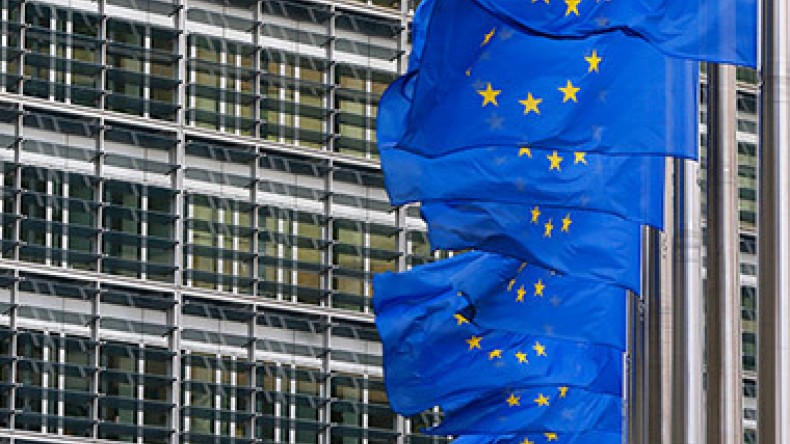
Euroskeptics: Fractious factions
By Patrick L Young
From RT
Despite the wealth of the English language, I am uncertain what collective noun is best for a gathering of euroskeptics. One possibility: “a Consensus of euroskeptics” looks increasingly unlikely.
Despite the fact that the EU has played fast and loose with concepts it allegedly espouses such as democracy...and against a background of vast Mediterranean unemployment, it is remarkable to reflect just how little anti-European activity is prevalent in say Spain where the same ‘speak your weight’ machine politics dominate the landscape. Then again the conventional media in most EU nations retain a firm hard-wired pro-EU bias, often incentivized by lavish grants.The BBC, for instance, has long had its nose in the EU grant trough. Therefore the road to euroskepticism is a tough one as the media will blithely ignore or smear those without blind faith in Brussels. Last year the fledgling German AfD was broadly ignored by pundits who deemed it incapable of gaining any votes apart from a few fringe "nutters". Despite being largely disregarded by, er, ‘free and fair’ media, AfD came within a whisker of the 5% threshold to have representatives under Germany’s rather corporate, party democracy.
AfD is an interesting point to start our journey through the disparate world of euroskepticism. For their skepticism is not the same as others’. The rapidly expanding euroskeptic universe is already riven by factional disputes which resemble the endless machinations of student Trotskyites battling each other over the future of the revolution while everybody else just gets on with life. AfD espouses a very German hue of euroskepticism, believing that Brussels needs root and branch reform which they hope to change from within. Thus AfD resembles Britain’s Conservatives who abandoned the Europhile Christian Democratic leagues (EPP) to create the somewhat less fawning ECR. Incidentally, Mrs Merkel was incensed at the idea David Cameron might make an alliance with AfD if they enter the European Parliament. If she prevails, will it be fair to say she is running two MEP groups?
UKIP, in many ways the poster child of modern euroskepticism, is riding high in Britain. Denounced as deranged ‘little Englanders’ in the media, UKIP is edging ahead in current polls which could mark a breakthrough election for leader Nigel Farage, generating a significant flow of euroskeptic additions to the European Parliament. However Mr Farage deems Brussels so corrupt and incompetent that renegotiation is futile. Thus AfD aren’t willing to ally with UKIP despite their being a broadly credible mainstream grouping.
UKIP is at a critical point, but apart from AfD they too have a narrow window of potential parliamentary allies amongst the emerging big beasts of euroskepticism. It is difficult to blame UKIP for being reluctant about new cross Channel partners. For starters the French have begun drinking up the euroskeptic message. The National Front could top the poll there. True, Marine Le Pen has been working to detoxify the brand her father spent so long running as a more overtly racist enterprise. However, it is tough to stomach the blind protectionist nationalism of France’s National Front while it’s former anti-Semitic fury now seems to focus on Islamic immigrants in particular. Nevertheless, in the otherwise fragmented world of euroskepticism Le Pen has found a key ally, the Dutch Freedom Party with similar aims and extremes. However they may not retain their recent poll lead because the party is fragmenting as a result of an anti-Moroccan chant performed by leader Geert Wilders in what looks like being a significant vote losing campaign gaffe. At the same time undermining your own party from within is a new departure even for the somewhat fractious world of euroskeptic relations. Then again it resembles student Trotskyism through and through.
Nevertheless otherwise non-harmonized but firmly euroskeptic parties of multiple shades could make up 30% of the seats compared to 12% currently. However, the various factions may yet rush to create post-election alliances in order to qualify for lucrative grants, and also to join the working committees at the core of Parliamentary policymaking. Meanwhile, in a clear example of how the EU promotes democracy in name only when it suits the cause of more Europe, the blindly fanatical Europhile EPP and Socialist (S&D) parties are already saying that so long as the euroskeptic bloc is a minority, the two biggest groups will maintain their grand coalition to ram policy through regardless of the opposition - or the growing skepticism of the electorate.
Such staggering contempt for democracy hardly suggests Europe is on the right track.
Newsfeed
Videos






























